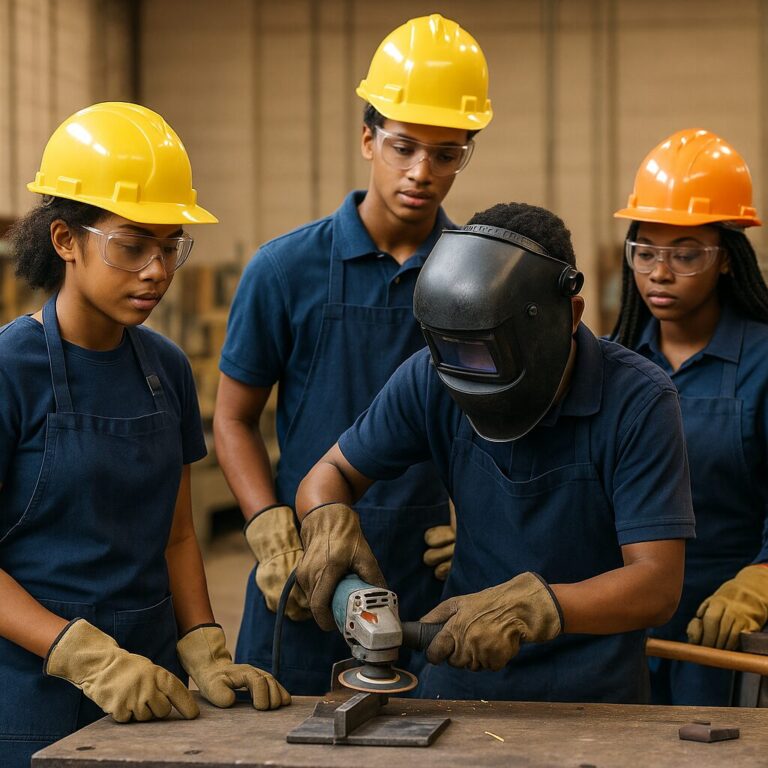For too long, the message to Black children has been singular: go to college, get a degree, and you’ll succeed. But the reality is that this path has left too many with crushing debt, no clear career, and few practical skills. Meanwhile, trade jobs — in construction, electrical work, plumbing, carpentry, welding, HVAC, and other skilled fields — remain in high demand, pay strong wages, and are vital for building wealth and independence.
The Future Belongs to Skilled Labor
Automation and artificial intelligence are reshaping the economy. Many white-collar jobs are disappearing, while trade and technical jobs remain secure. You can’t outsource plumbing, electrical work, or carpentry to a machine overseas. These jobs not only survive change — they thrive in it.
Why Black Children Are Being Left Behind
- Cultural Pressure: Too many are told that trade work is “less than” or not prestigious enough.
- Educational Neglect: Schools in Black communities often cut vocational programs first, leaving few pathways into trades.
- Policy Failure: Federal and state governments spend billions on college readiness while ignoring trades and apprenticeships.
This cultural and policy bias has pushed our children into dead ends: expensive degrees with little economic payoff, while trades that could offer stability and independence go unfilled.
The Opportunity in Trades
- High Earnings: Skilled trades often pay $50,000 to $100,000 annually, with opportunities to grow into six figures through entrepreneurship.
- Ownership Potential: A licensed plumber, electrician, or contractor can build a business, employ others, and pass down generational wealth.
- Job Security: Demand for skilled labor is rising as older tradesmen retire. The shortage of Black workers in these fields means opportunities are waiting.
From Consumers to Builders
Black America cannot rise if we remain consumers of labor rather than producers of it. Trade jobs create the builders of houses, the maintainers of infrastructure, and the entrepreneurs who can hire directly from their own community. Teaching our children trades is not just about jobs — it’s about control, independence, and ownership.
A Call to Action
- Parents: Encourage your children to explore apprenticeships and vocational programs, not just four-year colleges.
- Churches & Community Centers: Partner with unions and trade schools to create pipelines for Black youth.
- Policy Leaders: Demand investment in vocational programs in Black districts, equal to college prep.
- Youth: See trade work as power — a way to build, to own, and to leave a legacy.
Conclusion
The future economy will not reward those who only consume. It will reward those who produce, build, and repair. By teaching Black children the value of trade jobs, we are not limiting their potential — we are unlocking it. Because every electrician, plumber, carpenter, and builder we raise is another family lifted, another business created, and another step toward true economic independence.




